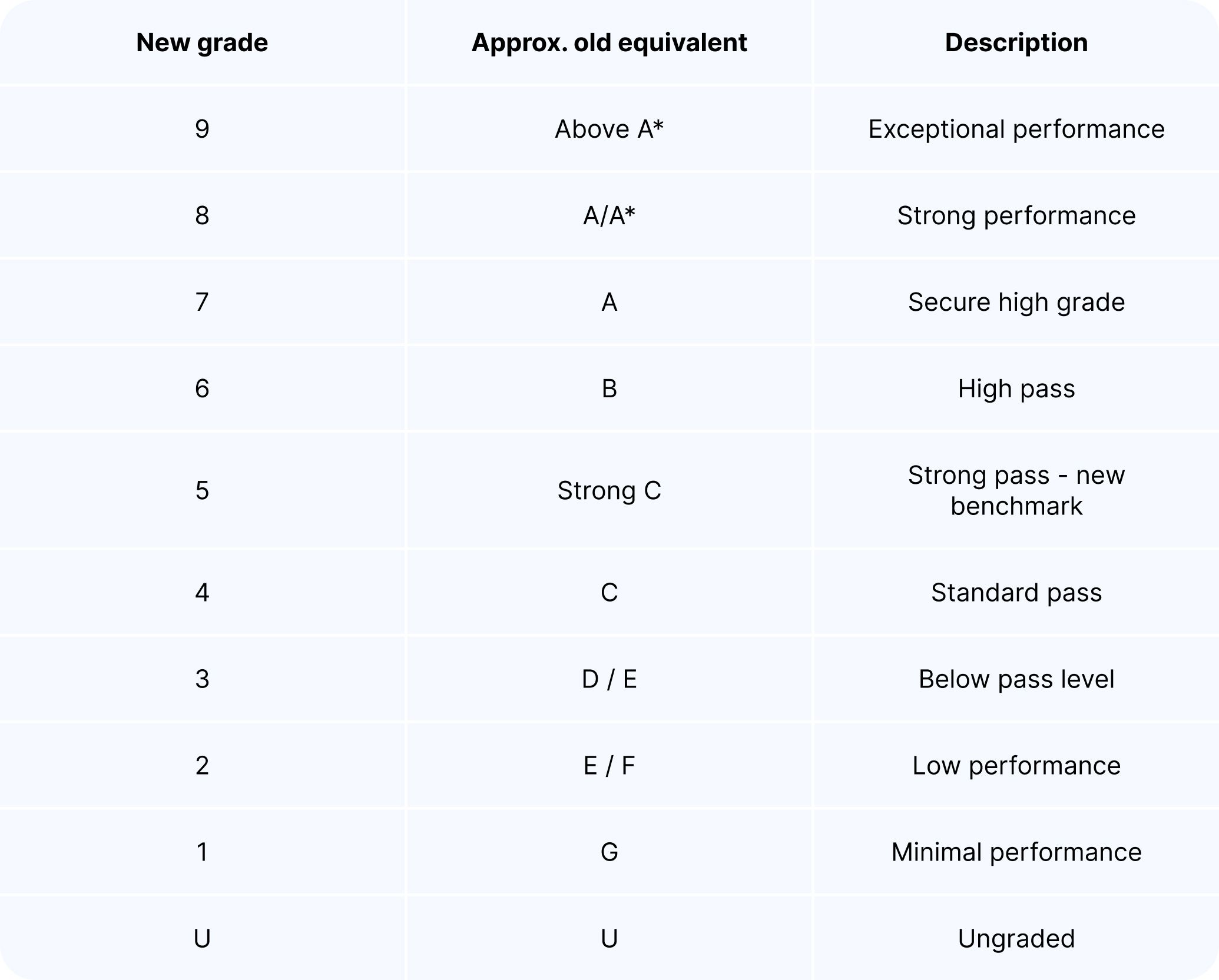Contents
For many families, the term GCSEs can initially feel like a mystery. These exams mark a major milestone in secondary education and play an important role in shaping future opportunities. This guide breaks down what GCSEs are, how they work, and how parents can best support their child through them.
What this post covers:
What GCSE stands for and when exams take place
Which subjects students can study
How GCSEs are assessed and graded
Why GCSEs are important
Practical tips for supporting a child through their GCSE years
What are GCSEs and when do they happen?
GCSE stands for General Certificate of Secondary Education. These are the main qualifications taken by students in Year 11 (around age 15–16) in England, Wales and Northern Ireland.
GCSEs are studied over two years: Year 10 and Year 11.
Exams are usually held in May and June of Year 11.
GCSE results are released in August.
Most students take 8 to 10 GCSE subjects, although this varies depending on the school and each individual’s strengths.
For more information, read How many GCSEs do you need? A guide for students and parents.
Which GCSE subjects do students study
Students follow a mix of core subjects and optional subjects.
Core (compulsory) subjects
Optional subjects
Chosen by the student in Year 9 (around age 13–14). These might include:
Humanities such as History, Geography or Religious Studies
Modern foreign languages such as French, Spanish or German
Creative subjects such as Art, Drama or Music
Other options such as Computer Science, Business Studies or Physical Education
This balance allows students to gain essential knowledge while exploring areas they enjoy or may want to pursue further.
How are GCSEs assessed?
Most GCSEs are assessed through final exams taken at the end of Year 11. In some subjects, coursework or practical assessments also contribute to the final grade. Examples include:
Speaking and listening tests in Modern Languages
Scientific experiments in Science subjects
Portfolios or performances in Art, Music or Drama
The grading system
GCSE results are given on a numerical scale from 9 to 1:
9 is the highest grade, showing exceptional performance.
4 is a standard pass, similar to a C grade in the old system.
1 is the lowest grade.
Here’s a simple comparison:

Why do GCSEs matter?
GCSEs are more than just exams; they are a gateway to the next stage of education and future career choices. They clearly record a student’s knowledge and skills at the end of secondary school. Schools, colleges, employers and universities often use them to understand a young person’s strengths.
The importance of GCSEs can be seen in several ways:
Recognising achievement: Results show how well a student has performed across various subjects.
Opening pathways: Grades influence which post-16 options are available, such as A Levels, vocational courses or apprenticeships.
Meeting requirements: Many colleges, employers and universities expect passes in core subjects, particularly English and Mathematics.
Doing well in GCSEs helps create more opportunities and provides flexibility for the years ahead.
How parents can support their child
Parents play a vital role in helping students manage the challenges of their GCSE years. The right support at home can reduce stress, build confidence, and improve outcomes.
Here are some practical and effective ways parents can help:
1. Be informed
Understanding the demands of GCSEs helps you guide your child more effectively.
Know the exam timetable: Schools publish dates for mock and final exams well in advance. Keep a calendar visible at home so your child can plan revision around key dates.
Learn about subject requirements: Different GCSE subjects have varying formats. Some rely heavily on coursework, while others are exam-only. A quick look at exam board specifications or school guidance can help you understand what your child needs to focus on.
Stay updated with school communications: Read newsletters, attend information evenings, and make use of online portals. This will help you spot early if your child is struggling or falling behind.
2. Encourage balance
It’s easy for GCSE preparation to become overwhelming, but balance is key to sustained performance.
Promote healthy routines: Encourage regular sleep, nutritious meals, and physical activity, all improving concentration and memory.
Set boundaries around screen time: Too much scrolling or gaming can eat into valuable revision and rest. Work with your child to agree on realistic limits.
Encourage breaks: Short, regular breaks during revision boost productivity. You might suggest the “Pomodoro technique” (25 minutes of focused work followed by a 5-minute break).
3. Create a study-friendly environment
Where and how a child studies can make a big difference.
Provide a quiet, organised space: A desk, good lighting, and minimal distractions support focus.
Ensure resources are available: Revision guides, online platforms, highlighters, and past papers are essential tools. Having these ready prevents unnecessary stress.
Model good habits: If possible, set aside a family “quiet time” where everyone reads, works, or studies. This shows your child you value focused learning too.
4. Celebrate effort, not just results
Praise goes a long way in keeping motivation high.
Acknowledge progress: Comment positively when your child completes a past paper, improves on a test, or sticks to their revision schedule.
Focus on resilience: If results aren’t as expected, highlight what was learned from the experience. This builds a growth mindset.
Mark milestones: After a week of steady revision or the end of mocks, plan a small treat or family outing. Rewards reinforce effort without creating pressure.
5. Work with teachers
Schools want to see students succeed and parents can be powerful allies.
Ask for feedback: Teachers can identify areas where your child is doing well and where they may need more practice.
Seek advice on strategies: Subject teachers often share revision tips or resources specific to their subject, such as how to analyse historical sources or practise exam-style questions in Mathematics.
Attend parents’ evenings: These events give you a clear picture of your child’s progress and an opportunity to ask for targeted support.
Looking ahead
GCSEs represent both an ending and a beginning, as they mark the completion of secondary school and the start of new opportunities. With the right preparation and encouragement, students can approach this stage confidently and excitedly, ready to move on to the next chapter of their education or career journey.
Don’t miss Atom’s GCSE giveaway!

Six months. Six epic prizes. Six chances to make the GCSE season unforgettable.
We’re launching Atom for GCSE prep in 2026, and to celebrate, over the next six months, we’re giving away thousands of pounds worth of prizes to help your child level up their GCSE revision.
Here’s a taste of what’s up for grabs:
The latest Apple tech, including an iPad Air, Vision Pro and more
Festival tickets for Boardmasters and Reading 2026
Europe interrail passes and £1,000 spending money
…and that’s just a few of the amazing prizes available.
Our first two winners have already taken home incredible prizes! Find out who they are and what they won in our latest giveaway update and keep an eye out for news of our November winner.
It’s free to join. UK only. Full T&Cs apply.
Contents
